MEDIA FOR CHANGE NETWORK
A call for civil disobedience against the privatisation of peasant seeds
Published
2 years agoon

For thousands of years, communities have nurtured and taken care of the crops and seeds that sustain us. Seeds are part of human history, work and knowledge systems, and our relationship with them is a never-ending conversation of care. This mutual nurturing has given rise to specific ways of cultivating, sharing, feeding and healing that are linked to community norms, responsibilities, obligations and rights.
People’s freedom to work with seeds hinges on the responsibility of communities who defend and maintain them, who care for them and enjoy the goods they provide. And this freedom is under threat.
Today there is a strong assault on people’s seeds. It comes from the drive to regulate, standardise and privatise seeds to expand markets for corporations. This is done through plant breeders’ rights and patent laws, as well as seed certification schemes, variety registers and marketing laws. Whatever the form, it is about legalising abuse, dispossession and devastation.
Today’s attack on seeds aims to put an end to peasant and Indigenous agriculture, an end to independent food production. Where peasant food sovereignty prevails, it is difficult to turn us into cheap and dependent labour, people without territory and without history. We face a coordinated political and technocratic crusade to impose uniform and rigid laws and regulations in favour of agroindustry. There is a determined effort to discredit people’s historical practices and ancestral indigenous peasant knowledge in order to make us dependent on corporations. Communities who have resisted have faced criminalisation, repression, and even imprisonment
Whether in Africa, Asia, Europe or the Americas, communities are fighting this pressure and we are united and mobilised to actively support them.
– In Benin, social movements have stopped the national parliament from discussing a law proposal to join UPOV, the Union for the Protection of New Plant Varieties. UPOV sets global standards for seed privatisation in favour of transnationals like Monsanto/Bayer, Syngenta and Corteva.
– In Guatemala, Indigenous peoples are in the streets demanding that their government’s proposed bill to adopt UPOV standards be scrapped as well. They call it “the Monsanto Law” and its rejection is part of an ongoing nationwide strike.
– In El Salvador, Guatemala and Honduras, groups are working together to prevent the adoption of a new ruling that would open the doors to genetically modified seeds in all three countries at once.
– In Thailand, civil society organisations are fighting hard against free trade agreements that impose UPOV instead of protecting the rights of farmers and other rural communities to maintain and use their local seeds.
-In Indonesia, farmers and civil society organisations continue to reject UPOV, which is being imposed through free trade negotiations and under pressure from countries like Japan. https://www.youtube.com/watch?v=J4pD_yZG1lc
-In the Philippines, farmers, scientists, concerned citizens and civil society organizations filed an environmental case to the Supreme Court to stop the commercial propagation of the genetically modified golden rice that is patented by Syngenta and other agrochemical corporations. Moreover, Filipino farmers are spearheading the fight for the recognition and strengthening of farmers’ rights to seeds and farmers’ seed system by forwarding seed commoning as an alternative to the UPOV-like laws in the country.
– Internationally, peasant and other social movements are also trying to get the UN Declaration on the Rights of Peasants and Other People Working in Rural Areas (UNDROP) translated into enforceable national laws.
We are determined to resist the dispossession of seeds from the hands of the people. We vigorously oppose registration, certification, patenting and marketing schemes, treaties, conventions, national and international laws and legal frameworks such as UPOV and other seed laws that promote the dispossession of the common goods and knowledge of our peoples.
We, as peoples in resistance, guardians of the seeds, will continue keeping, sharing and reproducing our seeds so our presence will germinate from our roots.
Signatories (Only organisation name displayed):
|
ABSDD/Slow Food |
Burkina Faso |
|
Acción Comunal |
Colombia |
|
ACDIC |
Cameroun |
|
AFSA |
Africa region |
|
Switzerland |
|
|
AgriMovement |
Lebanon |
|
AIFFRS |
India |
|
AKban Mague |
Colombia |
|
Alexander von Humboldt Foundation |
USA |
|
A lo Verde Escuela de Huertos Agroecologicos |
Ecuador |
|
Alliance pour le Développement Durable et pour l’Environnement |
Côte d’Ivoire |
|
Alliance for Sustainable and Holistic Agriculture |
India |
|
Amigos unidos con amor hojas de agricultura |
Colombia |
|
Anti-mining struggle committee |
India. |
|
ANAGAVEC |
Ecuador |
|
APBREBES |
Global/Switzerland |
|
Aravali Bachao |
India |
|
ARBA (Asociación para la recuperación del bosque autóctono) |
Spain |
|
Aseas |
Colombia |
|
Asoproorgànicos |
Colombia |
|
Association des Jeunes Agriculteurs de la Casamance |
Senegal |
|
Asociación de mujeres unidas por el desarrollo juanchopuquio encañada |
Peru |
|
Asociación Ecoaldea Aldeafeliz |
Colombia |
|
Asociacion Agroecologia y Fe |
Bolivia |
|
Asociación PROBIVIR |
Colombia |
|
Association pour la Défense de l’environnement et des Consommateurs (ADEC) |
Sénégal |
|
Asociación Shuar Sharup de cuidado y protección de semillas. |
Ecuador |
|
Association Sénégalaise des Producteurs de Semences Paysannes |
Senegal |
|
Association Tunisienne de Permaculture |
Tunisie |
|
Atukpamba y Red de Guardianes de Semillas de Ecuador |
Ecuador |
|
Audace Institut Afrique |
Côte d’Ivoire |
|
Bangladesh Agricultural Farm Labour Federation (BAFLF) |
Bangladesh |
|
Badabon Sangho |
Bangladesh |
|
Bendito Prashadam |
Colombia |
|
BioThai |
Thailand |
|
Biodiversity and Biosafety Association of Kenya |
Kenya |
|
Biodiversity Information Box |
Japan |
|
Biowatch South Africa |
South Africa |
|
Bhartiya Kisan Union (BKU) |
India |
|
Building Futures |
USA |
|
Cabildo Indígena de la cuenca del Río Guabas |
Colombia |
|
Cámara Verde de la Amazorinoquía |
Colombia |
|
Campesinos construyendo futuro |
Colombia |
|
Caritas Diocese of Malakal (CDoM) |
South Sudan |
|
Casa de semillas El Origen |
Colombia |
|
CCPA |
Sénégal |
|
CEIP |
Colombia |
|
CENDA |
Bolivia |
|
CERAI |
Spain |
|
Chile Mejor sin TLC |
Chile |
|
Chilis on Wheels |
United States |
|
C.netzero |
DRC |
|
City Mouse Garden |
United States |
|
COAG |
Spain |
|
Coati |
Colombia |
|
Cocapeutas Cooperatica Mujeres Medicina |
Peru |
|
Colectiva de mujeres Muralistas |
Colombia |
|
Colectivo Agroecológico Del Ecuador |
Ecuador |
|
Colectivo Cultura Saravita |
Colombia |
|
Colectivo por la Autonomía / Saberes Locales |
México |
|
Colombia Humana |
Colombia |
|
Colectivo Minga de soberanía alimentaria deChia |
Colombia |
|
Colectivo Semilla Negra |
México |
|
Colectivo Xiegua |
Colombia |
|
Comité de Derechos Humanos de la Sierra Norte de Veracruz |
México |
|
Comité Ouest Africain des semences Paysannes |
West Africa |
|
Commission of Charity and Social Actions – Caritas Dalat |
Viet Nam |
|
Comunidad Moneda Luna |
Colombia |
|
Comunidad Rural de la Buitrera |
Colombia |
|
comunidad kishuar Amazanga |
Ecuador |
|
Cooperativa Huacal |
México |
|
Coordinadora Ambiental Popular de Santa Rosa de Cabal |
Colombia |
|
COPAGEN |
West Africa |
|
CORDES MAELA RENAF |
Colombia |
|
Corpalabra |
Colombia |
|
CORPONIMA |
Colombia |
|
Corporación Aluna |
Colombia |
|
Corporación Creare Social |
Colombia |
|
Corporación Compromiso |
Colombia |
|
Corporacion Frutos de Utopía |
Colombia |
|
Corporación Síntesis |
Colombia |
|
Corredor biológico Montes del aguacate costa Rica |
Costa Rica |
|
CREATE |
INDIA |
|
CSRD |
India |
|
CSFdeepinnerMusic |
Netherlands |
|
Cuatro Rumbos Para Ti |
México |
|
CULTIVISA |
Colombia |
|
Cultivo Lo Nuestro |
Colombia |
|
Custodios de Semillas Ancestrales |
Colombia |
|
Darbar Sahitya Sansada |
India |
|
DESMI, A.C. |
México |
|
Ecofeminisarte |
Colombia |
|
Ecosinergia |
Colombia |
|
EdibleBristol |
UK |
|
El Jilote, SPG |
México |
|
Enda Pronat |
Senegal |
|
ESAL |
Colombia |
|
Escuela de Líderesas del Ecuador, y mujeres por el cambio, y defensa por la salud de los pueblos |
Ecuador |
|
Evobiota Consultancy Corporation |
Philippines |
|
Extinction Rebellion València |
España |
|
FAEB / Federation Agroecologique du Benin |
BENIN |
|
FIAN Indonesia |
Indonesia |
|
Finca Carrizales |
Colombia |
|
Frente de lucha Ambiental Delia Villalba |
Uruguay |
|
Friends of the Earth Nigeria |
Nigeria |
|
Fundacion Ambiental |
Colombia |
|
Fundacion Avá |
Argentina |
|
Fundación Julia Márquez |
Colombia |
|
Fundacion Biosistemas Integrados |
Uruguay |
|
Fundación la COSMOPOLITANA |
Colombia |
|
Fundacion Luna Arte |
Colombia |
|
Fundación Runakawsai |
Ecuador |
|
Gealac |
Peru |
|
Gender Justice |
Zambia |
|
Glesi |
Netherlands |
|
Good Food Community |
Philippines |
|
GRAIN |
International |
|
Grassroots klimaatboerderij |
Belgium |
|
Grassroots Trust |
Zambia |
|
Groupe d’action Écologique pour le développement intégral |
RDC |
|
Grow Local Colorado |
United States |
|
Grupo Allpa |
Ecuador |
|
Grupo Raquira Silvestre SAS |
Colombia |
|
Grupo Semillas |
Colombia |
|
HEKS Swiss Church Cooperation |
Switzerland |
|
Humaine |
Belgique |
|
Huerta comunitaria y Jardín Polinizador Con Ojos de Amor |
Colombia |
|
Huerta Marsella |
Bogota |
|
Huertas Swa Cho |
Colombia |
|
Huerto Agroecológico Atemajac |
México |
|
Incredible Edible Lambeth |
United Kingdom |
|
Indigenous Women and Girls Initiative |
Kenya |
|
Instituto Agroecológico Latinoamericano México |
México |
|
Instituto Humanitas |
Perú |
|
ISRA |
Sénégal |
|
JAL Diviso |
Colombia |
|
Joint Action for Water |
India |
|
Junta de agua vereda laureles |
Colombia |
|
JVE Côte d’Ivoire |
Côte d’Ivoire |
|
Kikandwa Environmental Association |
Uganda |
|
Laboratorio de Tierras |
Ecuador |
|
La Via Campesina East and Southern Africa |
Zimbabwe |
|
La Tucaneta |
Colombia |
|
Lapapaya |
Colombia |
|
La Cité Idéale |
Burkina Faso |
|
La Cuica Cósmica |
Ecuador |
|
La Savia |
Colombia |
|
Les amis de la Terre |
Togo |
|
Lideresa social |
Colombia |
|
Kansas interfaith Action |
USA |
|
Karnataka State Farmers Association (KRRS) |
India |
|
Malaysian Food Sovereignty Forum (FKMM) |
Malaysia |
|
MASIPAG |
Philippines |
|
Mesa Departamental de Diálogo y Concertación Agraría, Étnica y Popular de Nariño |
|
|
Methods Lab |
United States |
|
MINGAnet |
Colombia |
|
Mink’a Comunicación |
Argentina |
|
Mirachik |
Ecuador |
|
Mouvement d’Action Paysanne |
Belgium |
|
Mouvement des jeunes pour l’agriculture,l’agroécologique,et Agro pastorale (M.J.A.A.P) |
R.D.Congo |
|
Movement for Land and Agricultural Reform (MONLAR) |
Sri Lanka |
|
Movimiento Agroecológico de América Latina y el Caribe-MAELA |
Colombia |
|
Movimiento Campesino de Papaye |
Haïti |
|
Movimiento pacto histórico |
Colombia |
|
Movimiento Rural Cristiano |
España |
|
Mujeres que reverdecen |
Colombia |
|
Munsenga cooperative |
Zambia |
|
National Alliance for Agroecology The Gambia |
Gambia |
|
Malawi |
|
|
Ntaamba Hiinta Development Trust |
Zambia |
|
Ofraneh |
Honduras |
|
ojoVoz |
Mexico |
|
OK Seed Project |
Japan |
|
ONG YVEO |
Côte d’Ivoire |
|
Organisation des Ruraux pour une Agriculture Durable |
Benin |
|
Organización campesinos construyendo futuro (OCCF) |
Colombia |
|
Panitar Pally Unnyan Samiti |
India |
|
Paralegal Alliance Network |
Zambia |
|
Perkumpulan INISIATIF |
Indonesia |
|
Perkumpulan Kediri Bersama Rakyat (KIBAR) |
Indonesia |
|
Plataforma del País Valencià per un tren públic, social i sostenible que vertebre el territori i refrede el planeta |
Spain |
|
Primavera Zur |
Colombia |
|
Promotores ambientales del eje cafetero |
Colombia |
|
Proyecto agroecologico familiar y educativo ambiental sueño verde |
Colombia |
|
PTR Associates |
USA |
|
Punarchith |
India |
|
RADD |
Cameroun |
|
Radio Bénin |
Bénin |
|
RECHERCHE SANS FRONTIÈRES RSF |
RD Congo |
|
Red de Agricultores Urbanos Bogotá |
Colombia |
|
Red de consumo Responsable y consciente |
Colombia |
|
Red Colombiana de Agricultura Biológica de Antioquía |
Colombia |
|
Red de Custodia de Semillas Criollas y Nativas (CESTA) |
Colombia |
|
Red de foresteia análoga |
Ecuador |
|
Red de huertos agroecológicos de Cali |
Colombia |
|
Red de huertos urbanos |
Colombia |
|
Red de Resersvas / Resnatur |
Colombia |
|
Red de semillas criollas y nativas |
Uruguay |
|
Red de semillas libres de Colombia |
Colombia |
|
Red Distrital de Agricultores |
Colombia |
|
Red en defensa del Maiz |
México |
|
Red Kunagua |
Colombia |
|
Redmac |
Colombia |
|
REDMUNORCA |
Colombia |
|
Red de Pueblos Hermanos |
Colombia |
|
Red de jóvenes por la Agrobiodiversidad |
Perú |
|
Red Yuma |
Colombia |
|
Regional Schools and Colleges Permaculture |
Kenya |
|
Reservorio de Semillas Techotiva |
Colombia |
|
RESNATUR – Red de reservas |
Colombia |
|
Reseau JINUKUN |
Benin |
|
Resource Institute of Social Education |
India |
|
Salt Films |
India |
|
Sanwad |
India |
|
Save Earth Save Life Movement |
India |
|
Save Our Rice Campaign |
India |
|
Secretaria de educación de Bogotá |
Colombia |
|
Seed In A Box |
Lebanon |
|
Semillas de Nuestra Tierra |
México |
|
Semilla Nativa Colombia |
Colombia |
|
Semillas de Identidad – SWISSAID |
Colombia |
|
Serikat Buruh Migran Indonesia Kalbar |
Indonesia |
|
SERVIHUERTA |
Colombia |
|
Siyada network |
Arab région |
|
Société civile environnementale et agro-rurale du Congo |
RDC |
|
Sociedad libre y Neocampesina |
Colombia |
|
Soil if Cultures |
New Zealand |
|
South India Coordination Committee of Farmers Movements |
India |
|
SSN |
England |
|
Zambia and Africa |
|
|
Sukrutham |
India |
|
Synergie Nationale des Paysans et Riverains du Cameroun |
Cameroun |
|
Tanzania Alliance for Biodiversity |
Tanzania |
|
Tamizhaga Vivasayigal Sangam |
India |
|
The Ecocene Project |
India |
|
The Failing Farmer |
Tunisia |
|
The Hummingbird Foundation |
Kenya |
|
The Sixth Element School |
India |
|
The Utopian Seed Project |
USA |
|
Tierra Fertil |
Colombia |
|
Tinto to go |
Colombia |
|
Tlalixpan, sobre la faz de la tierra |
México |
|
Unillanos |
Colombia |
|
Unión de Organizaciones de la Sierra Juárez Oaxaca |
México |
|
Union Démocratique de l’Agriculture |
Maroc |
|
Unión de Organizaciones de la Sierra Juárez Oaxaca |
México |
|
Unión nacional de organizaciones regionales campesinas autónomas (UNORCA) |
Mexico |
|
Union Régionale des Associations Paysannes de DIOURBEL URAPD |
Senegal |
|
Uruguay Soberano |
Uruguay |
|
Waia Reserva Sagrada |
Colombia |
|
We Are the Solution |
Senegal |
|
West africa sea turtles conservation network |
Côte d’Ivoire |
|
WFDFFM |
Indonesia |
|
Wild Webcap |
Australia |
|
Women’s Alliance MN |
United States |
|
WMW/ATPA |
Tunisie |
|
xermoladas |
Spain |
|
Youth talk |
RDC |
|
Yuva Kaushal Vikas Mandal |
India |
|
Zambian Alliance for Agroecology and Biodiversity |
Zambia |
Related posts:
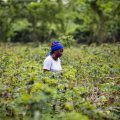
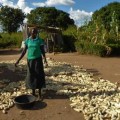 Gov’t to distribute seeds to 300,000 households in Acholi
Gov’t to distribute seeds to 300,000 households in Acholi
 Finally UN General Assembly adopts Peasant Rights declaration
Finally UN General Assembly adopts Peasant Rights declaration
 Defending peasants’ rights to seeds and genetic resources, against the biopiracy
Defending peasants’ rights to seeds and genetic resources, against the biopiracy
 African governments are giving in to corporate pressure and undermining local seed systems – report
African governments are giving in to corporate pressure and undermining local seed systems – report
You may like
MEDIA FOR CHANGE NETWORK
Activists storm TotalEnergies’ office ahead of G20 Summit, demand end to fossil fuel expansion in Africa
Published
3 days agoon
November 21, 2025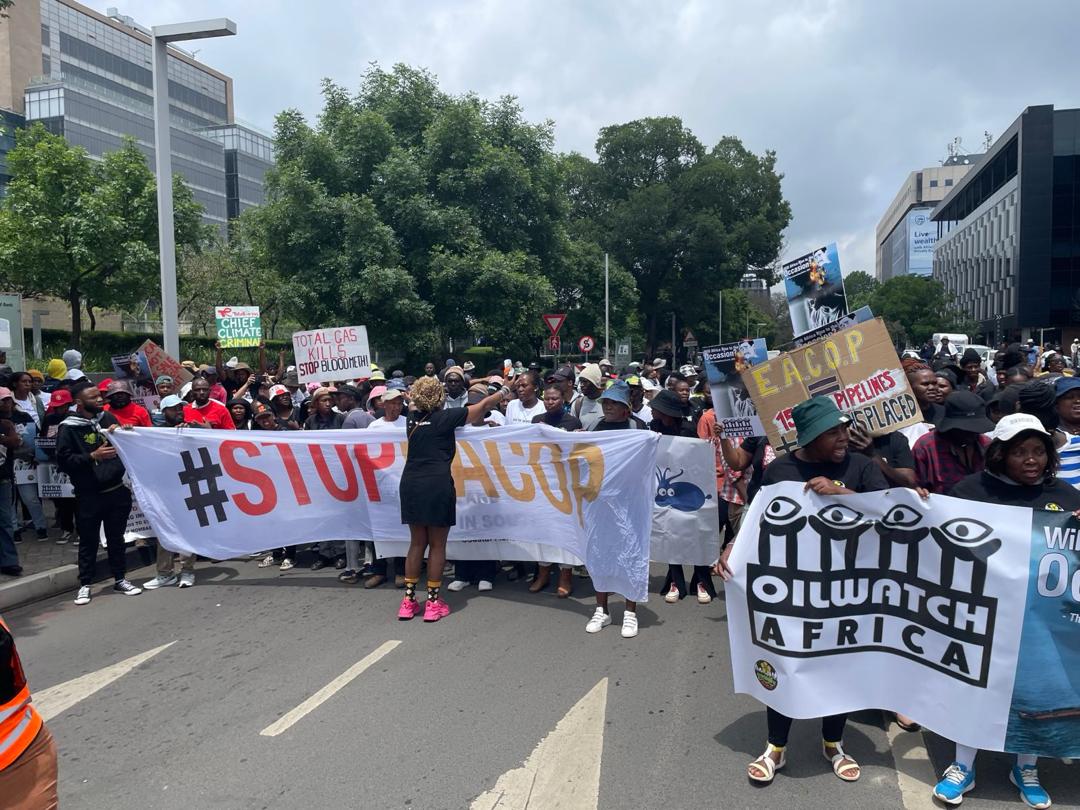
By Witness Radio team.
South Africa – As South Africa prepares to host the G20 Leaders’ Summit on the 22nd and 23rd, another gathering has already made its voice heard. Activists, including climate activist groups and affected communities, stormed the Johannesburg offices of TotalEnergies on Thursday to express their disappointment over the company’s continued investments in fossil fuels, which they say have resulted in gross human rights violations.
The action, they said, is part of a broader fight to “End a Century of Exploitation, Greenwashing, and Fossil Fuel Expansion in Africa.”
A coalition of 29 organizations marched to the company’s offices in Johannesburg, delivering a petition alongside banners reading “Africa Is Not for Sale,” “Stop EACOP,” and “100,000 Displaced.” They called on the France-based corporation to halt all new oil and gas exploration and development in Africa, including the East African Crude Oil Pipeline (EACOP), the Mozambique gas project, and offshore drilling in South Africa.
They also demanded that TotalEnergies acknowledge and compensate communities whose land, livelihoods, and ecosystems have been harmed by its operations.
The demonstration was organised by Fossil Ad Ban, StopEACOP, Green Connection, Earthlife Africa, Power Shift Africa, and others. It coincides with the G20 Leaders’ Summit, which begins in Johannesburg on Saturday, the 22nd of November, 2025.
“We are marching shortly before the G20 Summit to draw world leaders’ attention to our calls,” said Lazola Kati, the campaign coordinator for Fossil Ad Ban.
The G20, composed of 20 countries, the European Union (EU), and the African Union (AU), addresses global economic issues, including climate change mitigation, international financial stability, and sustainable development. This year marks the first G20 Summit to be held on African soil, under the theme “solidarity, equality and sustainability.”
Activists say the Summit offers a critical moment to expose injustices committed by Global North countries and corporations that claim to promote development in the Global South, while instead profiting from these projects that leave affected communities in misery.
Their central message targets TotalEnergies. Activists accuse the company, now marking 101 years of existence, of causing environmental destruction, land dispossession, and human rights violations across the continent.
“From the Niger Delta to Cabo Delgado, from EACOP’s route through Uganda and Tanzania to the expanding offshore oil blocks along South Africa’s coast, TotalEnergies has built profit on the suffering of people and the degradation of ecosystems,” reads part of the coalition’s letter addressed to TotalEnergies South Africa.
They argue that while the company brands itself as a “green” and “responsible” energy leader, it continues to pour billions of dollars into new oil and gas projects, while spending millions on advertising and sponsorships to present itself as climate-friendly, an act they describe as corporate greenwashing that obstructs real climate action.
Patrick Edema of StopEACOP noted that the pipeline will pass through 178 villages in Uganda and 231 in Tanzania, causing massive physical and economic displacement. “Our message is clear: TotalEnergies’ century of harm ends now. We will not allow you to mortgage our future for your fossil fuel profits. We will #StopEACOP,” he said.
An estimated 100,000 people in Uganda and Tanzania have already lost, or will lose, land used for farming or livestock due to the project.
In Mozambique, TotalEnergies’ fossil gas project in Cabo Delgado has also caused widespread displacement. The company and its partners are constructing a gas processing plant on a 7,000-hectare site allocated by the government, a move that required the relocation of 557 households, many of whom say promised compensation and replacement land never materialised.
“Africa does not need another century of fossil fuel colonialism,” the coalition stated in its letter. “We need a future powered by justice, renewable energy, and community-led solutions.” They called on TotalEnergies to align with the demands expected to be raised at the G20 and COP30 conferences: to end fossil fuel subsidies and to stop all new oil and gas development.
Lisa Makaula, advocacy officer at The Green Connection, emphasized the urgency for communities to speak out. “The world is at a tipping point, and as developing nations, we cannot afford to invest in fossil fuel projects that will worsen the impacts of climate change. Fisher livelihoods are already being destroyed in West Africa due to oil and gas exploration. We need committed leaders who will ensure that oceans are protected and that communities are not left behind as we transition to a low-carbon economy, with equity and fairness at the forefront.”
In their letter, the coalition further demands that TotalEnergies commit to a just and equitable transition that prioritizes renewable energy, distributive justice, and African ownership of the energy transition.
Related posts:

 Banks have given almost $7tn to fossil fuel firms since Paris deal, report reveals
Banks have given almost $7tn to fossil fuel firms since Paris deal, report reveals
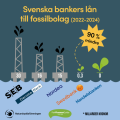 New billion-dollar loans to fossil fuel companies from SEB, Nordea and Danske Bank.
New billion-dollar loans to fossil fuel companies from SEB, Nordea and Danske Bank.
 Financial Institutions from Africa have made a monumental commitment of $100 billion to Africa’s green industrialization, a decision of immense significance that has the potential to shape Africa’s future.
Financial Institutions from Africa have made a monumental commitment of $100 billion to Africa’s green industrialization, a decision of immense significance that has the potential to shape Africa’s future.
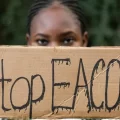 Well connected: The resistance against the fossil industry in East Africa.
Well connected: The resistance against the fossil industry in East Africa.
MEDIA FOR CHANGE NETWORK
Environmentalists reject TFFF, warning it will deepen forest destruction.
Published
5 days agoon
November 20, 2025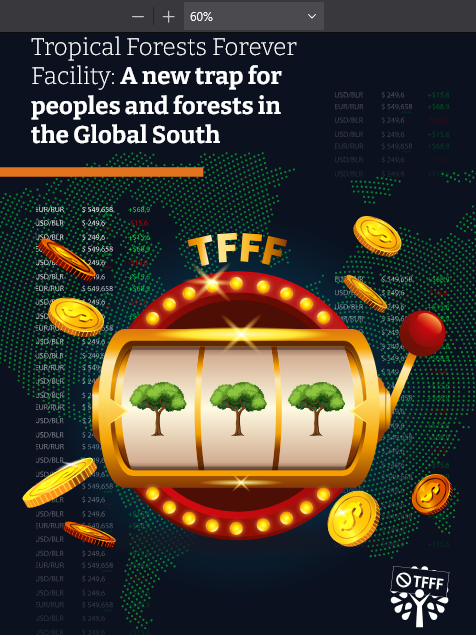
By Witness Radio team
The Tropical Forest Forever Facility (TFFF), unveiled with great fanfare on November 6th, 2025, as a pre-event ahead of the 30th UN Climate Conference in Belém, is already facing a storm of criticism from civil society and environmentalists.
More than 200 civil society organizations, Indigenous networks, and environmental justice groups from every corner of the globe are demanding an immediate halt to the initiative, calling it “a false solution that will deepen forest destruction rather than stop it.”
The Tropical Forest Forever Facility (TFFF) is a proposed global financing mechanism intended to support the long-term protection of tropical forests. Its goal, according to those behind it, is to offer stable, ongoing funding to countries that preserve or expand their forest cover, using investment-generated returns to reward practical conservation efforts.
But activists warn that the facility is being promoted as a bold new funding model for forest conservation. Yet, in reality, it is built on a financial structure that they say will benefit wealthy investors while burdening tropical forest nations with more debt, potentially leading to their further exploitation.
While in Belém, Brazil, on November 6th, global leaders officially launched the Tropical Forest Forever Facility (TFFF), with a collective investment of USD $5.5 billion following an initial US$1 billion committed by Brazil in September this year.
COP30 is the United Nations Climate Change Conference taking place in Belém, Brazil, from November 10th to 21st, 2025. UN Climate Change Conferences (or COPs) take place every year, and are the World’s only multilateral decision-making forum on climate change that brings together almost every country.
According to the Fund promoters, the Tropical Forest Forever Facility (TFFF) emerges as an innovative, essential, and strategic financing solution designed to permanently protect tropical forests, the biological and climatic pillars of our planet, through addressing the climate crisis, combating biodiversity loss, and recognizing Indigenous Peoples and traditional Communities in climate justice.
The TFFF’s governance is split into two parts: The Tropical Forest Investment Fund (TFIF), run by the World Bank under its own governance system, responsible for managing investments and deciding how much money is available for forest payments, and the TFFF Secretariat, which oversees monitoring, reporting, and the distribution of those payments to participating countries.
But environmentalists argue that this financial model reveals a more profound, more troubling logic. They say the initiative is a colonial plan by Northern elites, for Northern elites, and designed by wealthy investors who get paid first. At the same time, forest peoples receive only “what is left.”
“TFFF is yet another trap that will not stop deforestation. TFFF is a colonial plan of Northern elites, by Northern elites, and for Northern elites that will make the rich richer by extracting wealth from the global South. Initiatives like this one end up reinforcing a capitalist, racist, colonialist, and patriarchal vision of the world that only deepens the current injustices and manifold crises,” they wrote in a petition calling individuals to join efforts to stop the initiative.
The TFFF claims to be a “new hope” for tropical forests worldwide. However, it’s not designed to address the drivers of deforestation, but to benefit investors in financial markets that are actually driving deforestation.
Far from protecting forests and their communities, this new market-based initiative will actually reinforce a capitalist, racist, colonialist, and patriarchal worldview that only deepens current manifold crises and injustices. It could lead to the displacement of indigenous communities and the loss of their traditional lands, a direct violation of their rights, and a significant social injustice.
The World Bank is set to host the TFIF and influence daily fund management. Activists argue that this Bank has a long record of financing projects that violate community rights, promote industrial plantations, and deepen debt crises in the global South. For instance, the Bank’s support for large-scale infrastructure projects has often led to the displacement of local communities and environmental degradation.
For critics, this is proof that the TFFF is yet another top-down, Northern-led mechanism destined to repeat past failures. Similar initiatives in the past have often failed to address the root causes of deforestation, instead focusing on market-based solutions that benefit investors more than local communities.
It is high time to address the root causes of deforestation: unjust economic relations and trade, land grabbing by agribusiness, and expansion of mining and other extractive industries. These are the systemic issues that perpetuate deforestation and environmental degradation. Our commitment is to resist struggles against large-scale projects that destroy forests and fuel climate chaos. TFFF will undermine solidarity among communities protecting their territories.
Related posts:

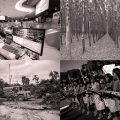 How forest policies and agencies promote sustainable destruction
How forest policies and agencies promote sustainable destruction
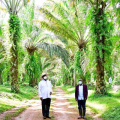 Environmentalists raise red flags over plan to expand oil palm fields in Kalangala
Environmentalists raise red flags over plan to expand oil palm fields in Kalangala
 Uganda: Court of Appeal starts hearing an appeal case challenging the High Court’s decision of not canceling the ESIA certificate that allowed the cutting down of Bugoma Forest.
Uganda: Court of Appeal starts hearing an appeal case challenging the High Court’s decision of not canceling the ESIA certificate that allowed the cutting down of Bugoma Forest.
 UNCCD COP16: NGOs issue a stark warning and call for urgent actions to deal with the escalating threats of desertification, land degradation, and drought.
UNCCD COP16: NGOs issue a stark warning and call for urgent actions to deal with the escalating threats of desertification, land degradation, and drought.
MEDIA FOR CHANGE NETWORK
“Vacant Land” Narrative Fuels Dispossession and Ecological Crisis in Africa – New report.
Published
2 weeks agoon
November 13, 2025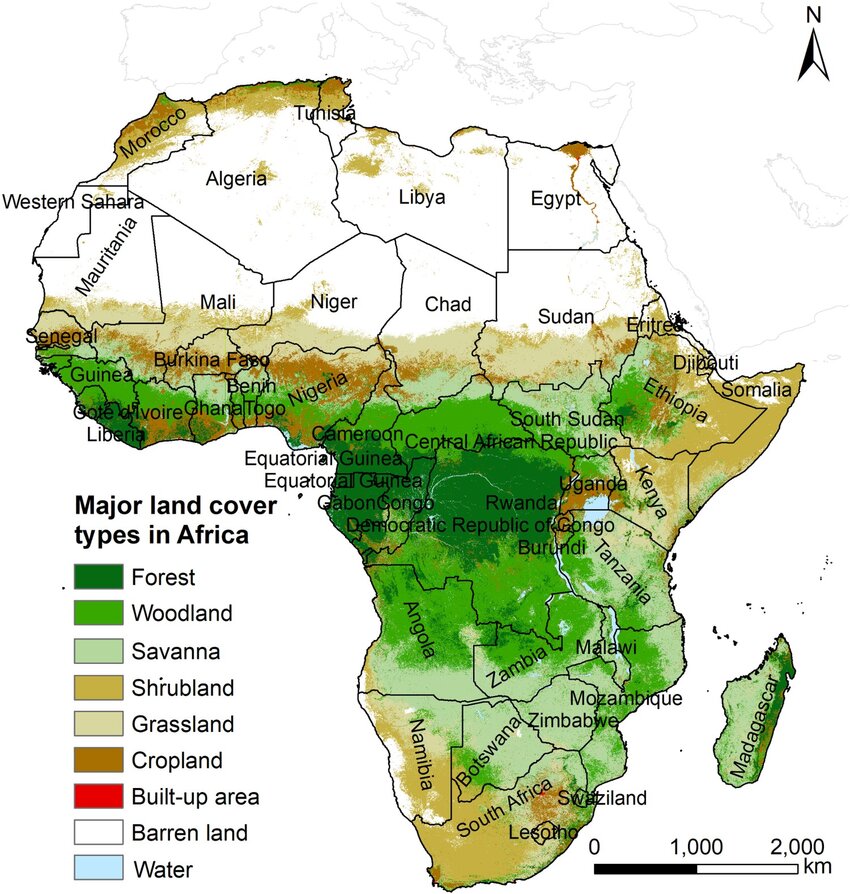
By Witness Radio team.
Over the years, the African continent has been damaged by the notion that it has vast and vacant land that is unused or underutilised, waiting to be transformed into industrial farms or profitable carbon markets. This myth, typical of the colonial era ideologies, has justified land grabs, mass displacements, and environmental destruction in the name of development and modernisation.
A new report by the Alliance for Food Sovereignty in Africa (AFSA) titled “Land Availability and Land-Use Changes in Africa (2025)” dismisses this narrative as misleading. Drawing on satellite data, field research, and interviews with farmers across Africa, including Zambia, Mozambique, South Africa, and Zimbabwe, the study reveals that far from being empty, Africa’s landscapes are multifunctional systems that sustain millions of lives.
“Much of the land labelled as “underutilised” is, in fact, used for grazing, shifting cultivation, gathering wild foods, spiritual practices, or is part of ecologically significant systems such as forests, wetlands, or savannahs. These uses are often invisible in formal land registries or economic metrics but are essential for local livelihoods and biodiversity. Moreover, the land often carries layered customary claims and is far from being available for simple expropriation,” says the report.
“Africa has seen three waves of dispossession, and we are in the midst of the third. The first was the alienation of land through conquest and annexation in the colonial period. In some parts of the continent, there have been reversals as part of national liberation struggles and the early independence era. But state developmentalism through the post-colonial period also brought about a second wave of state-driven land dispossession.” This historical context is crucial to understanding the current state of land rights and development in Africa. Said Ruth Hall, a professor at the Institute for Poverty, Land and Agrarian Studies (PLAS), at the University of the Western Cape in Cape Town, South Africa, during the official launch of the report.
The report further underestimates the assumption that smallholder farmers are unproductive and should be replaced with mechanised large-scale farming, leading to a loss of food sovereignty.
“The claim that small-scale farmers are incapable of feeding Africa is not supported by evidence. Africa has an estimated 33 million smallholder farmers, who manage 80% of the continent’s farmland and produce up to 80% of its food. Rather than being inefficient, small-scale agro-ecological farming offers numerous advantages: it is more labour-intensive, resilient to shocks, adaptable to local environments, and embedded in cultural and social life. Dismissing this sector in favour of large-scale, mechanised monocultures undermines food sovereignty, biodiversity, and rural employment.” Reads the Report.
The idea that industrial agriculture will lift millions out of poverty has not materialised. Instead, large-scale agribusiness projects have often concentrated land and wealth in the hands of elites and foreign investors. Job creation has been minimal, as modern farms rely heavily on machinery rather than human labour. Moreover, export-oriented agriculture prioritises global markets over local food security, leaving communities vulnerable to price fluctuations and shortages.
“The promise that agro-industrial expansion will create millions of decent jobs is historically and economically questionable. Agro-industrial models tend to displace labour through mechanisation and concentrate benefits in the hands of large companies. Most industrial agriculture jobs are seasonal, poorly paid, and insecure. In contrast, smallholder farming remains the primary source of employment across Africa, particularly for young people and women. The idea that technology-intensive farming will be a panacea for unemployment ignores the structural realities of African economies and the failures of previous industrialisation efforts.”
Additionally, the assumption that increasing yields and expanding markets will automatically improve food access overlooks the structural causes of food insecurity. People’s ability, particularly that of the poor and marginalised, to access nutritious food depends on land rights, income distribution, gender equity, and the functioning of political systems. In many countries, high agricultural productivity coexists with hunger and malnutrition because food systems are oriented towards export and profit rather than equitable distribution and local nourishment. It highlights the urgent need for equitable food distribution, making the audience more empathetic and aware of the issue.
Furthermore, technological fixes such as improved seeds, synthetic fertilizers, and irrigation are being promoted as solutions to Africa’s food insecurity, but evidence suggests otherwise. The Alliance for a Green Revolution in Africa (AGRA) spent over a decade pushing such technologies with little success; hunger actually increased in its target countries.
These high-input models overlook local ecological realities and structural inequalities, while increasing dependence on costly external inputs. As a result, smallholders often fall into debt and lose control over their own seeds and farming systems. It underscores the importance of understanding and respecting local ecological realities, making the audience feel more connected and responsible.
Africa is already experiencing an increased and accelerating squeeze on land due to competing demands including rapid population growth and urbanisation, Expansion of mining operations, especially for critical minerals like cobalt, lithium, and rare-earth elements, which are central to the global green transition, The proliferation of carbon-offset projects, often requiring vast tracts of land for afforestation or reforestation schemes that displace existing land users, Rising global demand for timber, which is increasing deforestation and land competition as well as Agricultural expansion for commodity crops, including large-scale plantations of palm oil, sugarcane, tobacco, and rubber.
“In East Africa, we see mass evictions, like the Maasai of Burunguru, forced from their ancestral territories in the name of conservation and tourism. In Central Africa, forests are cleared for mining of transitional minerals, destroying ecosystems and livelihoods. Women, a backbone of Africa’s food production, remain the most affected, and least consulted in decisions over land and resources and things that affect them.” Said Mariam Bassi Olsen from Friends of the Earth Nigeria, and a representative of the Alliance for Food Sovereignty in Africa.
The report urges a shift away from Africa’s high-tech, market-driven, land-intensive development model toward a just, sustainable, and locally grounded vision by promoting agroecology for food sovereignty, ecological renewal, and rural livelihoods, while reducing the need for land expansion through improved productivity, equitable food distribution, and reduced waste.
Additionally, a call is made for responsible urban planning, sustainable timber management, and reduced mineral demand through circular economies, as well as the legal recognition of customary land rights, especially for women and Indigenous peoples, and adherence to the principle of Free, Prior, and Informed Consent (FPIC) for all land investments.
Related posts:
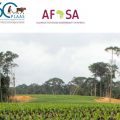
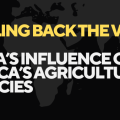 AGRA’s Silent Takeover: The Hidden Impact on Africa’s Agricultural Policies.
AGRA’s Silent Takeover: The Hidden Impact on Africa’s Agricultural Policies.
 63 million people food insecure in Horn of Africa: report
63 million people food insecure in Horn of Africa: report
 African Food Systems Summit 2024: Do not use it to promote failed agricultural models – African Faith Leaders.
African Food Systems Summit 2024: Do not use it to promote failed agricultural models – African Faith Leaders.
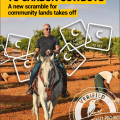 Carbon offset projects exacerbate land grabbing and undermine small farmers’ independence – GRAIN report
Carbon offset projects exacerbate land grabbing and undermine small farmers’ independence – GRAIN report

Activists storm TotalEnergies’ office ahead of G20 Summit, demand end to fossil fuel expansion in Africa

Environmentalists reject TFFF, warning it will deepen forest destruction.

“Vacant Land” Narrative Fuels Dispossession and Ecological Crisis in Africa – New report.

Uganda’s Army is on the spot for forcibly grabbing land for families in Pangero Chiefdom in Nebbi district.

Seed Boot Camp: A struggle to conserve local and indigenous seeds from extinction.

REC25 & EXPO Ends with a call on Uganda to balance conservation and livelihood

“Vacant Land” Narrative Fuels Dispossession and Ecological Crisis in Africa – New report.

Report reveals ongoing Human Rights Abuses and environmental destruction by the Chinese oil company CNOOC

Innovative Finance from Canada projects positive impact on local communities.
Over 5000 Indigenous Communities evicted in Kiryandongo District
Petition To Land Inquiry Commission Over Human Rights In Kiryandongo District
Invisible victims of Uganda Land Grabs
Resource Center
- REPARATORY AND CLIMATE JUSTICE MUST BE AT THE CORE OF COP30, SAY GLOBAL LEADERS AND MOVEMENTS
- LAND GRABS AT GUNPOINT REPORT IN KIRYANDONGO DISTRICT
- THOSE OIL LIARS! THEY DESTROYED MY BUSINESS!
- RESEARCH BRIEF -TOURISM POTENTIAL OF GREATER MASAKA -MARCH 2025
- The Mouila Declaration of the Informal Alliance against the Expansion of Industrial Monocultures
- FORCED LAND EVICTIONS IN UGANDA TRENDS RIGHTS OF DEFENDERS IMPACT AND CALL FOR ACTION
- 12 KEY DEMANDS FROM CSOS TO WORLD LEADERS AT THE OPENING OF COP16 IN SAUDI ARABIA
- PRESENDIANTIAL DIRECTIVE BANNING ALL LAND EVICTIONS IN UGANDA
Legal Framework
READ BY CATEGORY
Newsletter
Trending
-

 MEDIA FOR CHANGE NETWORK2 weeks ago
MEDIA FOR CHANGE NETWORK2 weeks ago“Vacant Land” Narrative Fuels Dispossession and Ecological Crisis in Africa – New report.
-

 MEDIA FOR CHANGE NETWORK3 days ago
MEDIA FOR CHANGE NETWORK3 days agoActivists storm TotalEnergies’ office ahead of G20 Summit, demand end to fossil fuel expansion in Africa
-

 MEDIA FOR CHANGE NETWORK2 weeks ago
MEDIA FOR CHANGE NETWORK2 weeks agoUganda’s Army is on the spot for forcibly grabbing land for families in Pangero Chiefdom in Nebbi district.
-

 MEDIA FOR CHANGE NETWORK2 weeks ago
MEDIA FOR CHANGE NETWORK2 weeks agoSeed Sovereignty: Most existing and emerging laws and policies on seeds are endangering seed saving and conservation on the African continent.
-

 MEDIA FOR CHANGE NETWORK5 days ago
MEDIA FOR CHANGE NETWORK5 days agoEnvironmentalists reject TFFF, warning it will deepen forest destruction.
-

 NGO WORK2 weeks ago
NGO WORK2 weeks agoDiscover How Foreign Interests and Resource Extraction Continue to Drive Congo’s Crisis
-
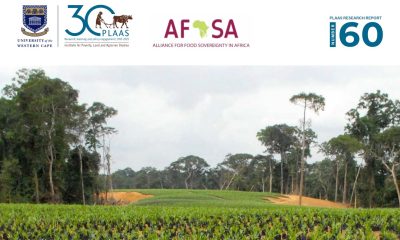
 NGO WORK2 weeks ago
NGO WORK2 weeks agoAfrica’s Land Is Not Empty: New Report Debunks the Myth of “Unused Land” and Calls for a Just Future for the Continent’s Farmland
-
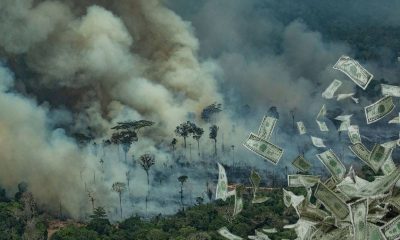
 NGO WORK2 weeks ago
NGO WORK2 weeks agoClimate wash: The World Bank’s Fresh Offensive on Land Rights

